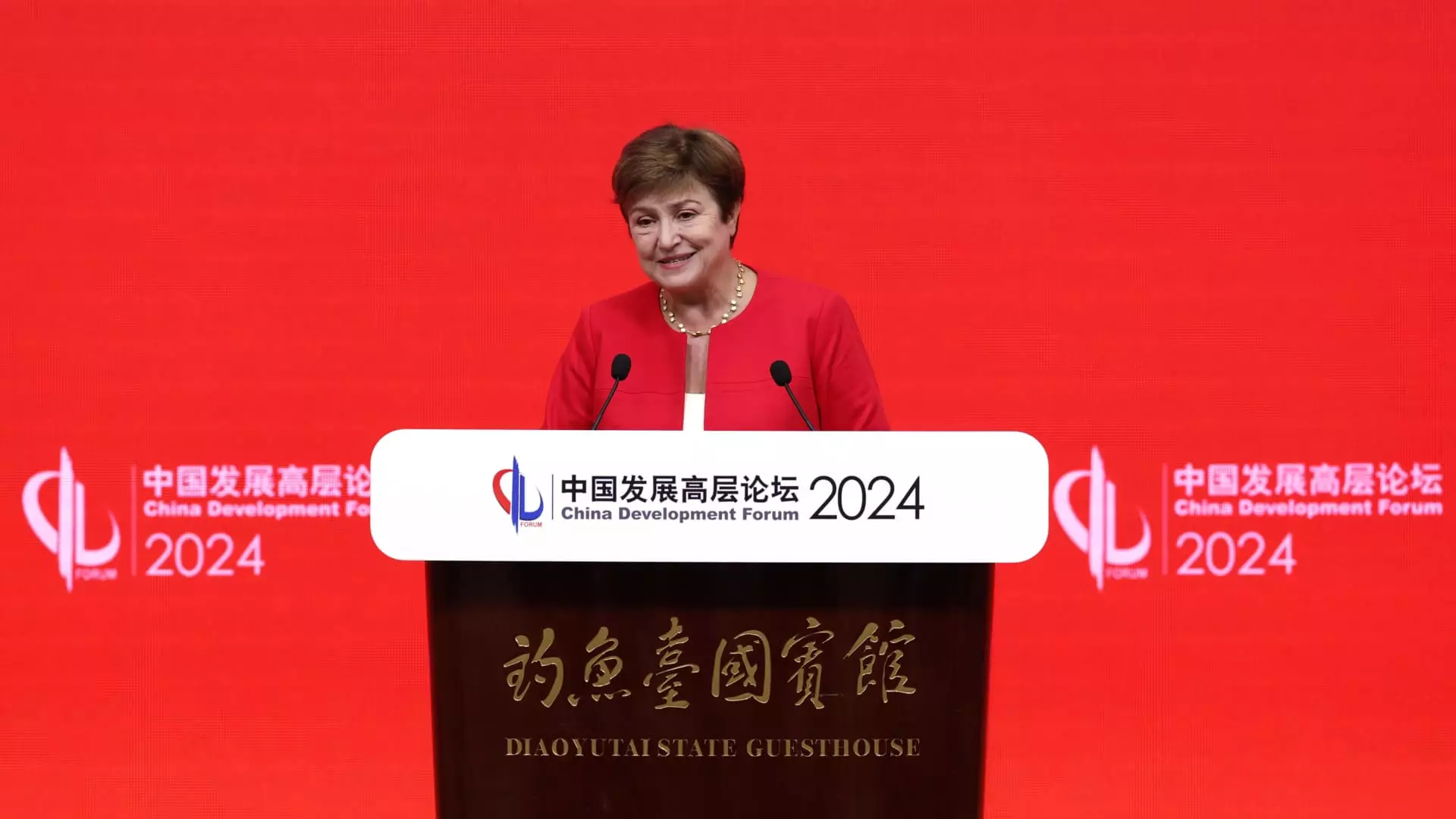China is currently facing a critical decision regarding its economic future. According to the International Monetary Fund’s Managing Director Kristalina Georgieva, the country is at a crossroads where it must choose between sticking to its old economic policies or implementing reforms to stimulate growth. With factors such as low productivity growth and an aging population, China needs to make significant changes to sustain its economic development in the long term.
Georgieva emphasized the importance of implementing a comprehensive package of pro-market reforms to foster high-quality growth. By updating its policies to align with the demands of a new era, China could potentially experience a 20% expansion in its real economy over the next 15 years. This growth would be equivalent to adding US$3.5 trillion to the Chinese economy, indicating the substantial benefits of embracing change.
Despite the challenges that China faces, Georgieva expressed optimism about the country’s potential to continue being a key contributor to global economic growth. However, she highlighted the pressing need for China to address critical issues such as transitioning the property sector to a more sustainable footing and reducing risks associated with local government debt. Failure to take decisive action could result in prolonged economic struggles and hinder the country’s growth prospects.
Chinese Premier Li Qiang outlined the government’s commitment to promoting high-quality development, intensifying macro-policy adjustments, and expanding domestic demand during the China Development Forum. Additionally, efforts to enhance openness and provide further protection to foreign-funded firms demonstrate China’s determination to attract investment and foster economic stability. These initiatives align with the government’s goal of achieving a growth target of around 5% in the coming years.
Looking ahead, China must prioritize structural reforms to address underlying issues such as overcapacity, price pressures, and debt crises. By focusing on boosting domestic consumption and investor confidence, the country can create a more sustainable growth trajectory. The IMF’s prediction of 4.6% economic growth in 2024 serves as a reminder of the importance of enacting policy changes to overcome existing challenges.
China finds itself at a critical juncture where strategic decisions will determine its economic trajectory for years to come. By embracing reforms, addressing key challenges, and implementing proactive measures, China can unlock substantial growth potential and solidify its position as a global economic powerhouse. The path forward requires bold steps, comprehensive reforms, and a collective effort to navigate the complexities of a rapidly evolving economic landscape.

